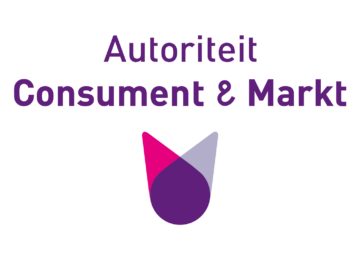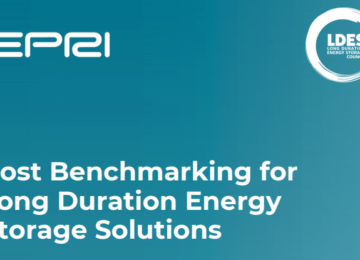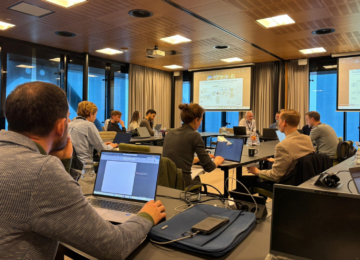Interview with Peter de Groot (VVD) on the role of energy storage in energy transition
The Lower House elections are just around the corner, and Energy Storage NL is curious to see how energy storage is included in the party programs of various political parties. In the run-up to the elections, Energy Storage NL is focusing on 'energy storage in politics'. For this campaign, we interviewed several members of parliament about what they think is the importance of energy storage in the energy system. This time our interview is with Peter de Groot, MP for the VVD.
What do you think is the main added value of energy storage in the energy system, in the short and long term? And how do you see the role of storage within the energy system itself?
Storage is not something new. We've always had gas storage, and for good reason. That says enough about the importance of holding energy until you need it. With renewable energy, it's no different. If you don't store it, it disappears and you lose it.
So the added value of storage is that you create certainty, both in the national energy system and at the micro level. In the winter we use a lot more energy for heating and you have to get that from somewhere. In the old system, you simply turned up the coal-fired power plant, but soon you won't be able to suddenly turn up the speed of a windmill when there's no wind, or make a solar panel work without sun.
That's why storage always plays a role, from the national supply to a neighborhood battery or even a home battery. And I would venture to say: if we get a better grasp of that so that storage is rolled out at different levels, then we really take a big step forward in the whole energy transition.
What role do you see for energy storage in countering grid congestion, and do you think this potential is currently being adequately exploited?
I think storage can play a significant role in countering grid congestion. The potential is certainly there. You can already see examples, for example at the railroad: energy is temporarily stored there so that there is enough power when a train passes. Such local or micro solutions - a battery at a business park or in a neighborhood - can help very concretely to give businesses or households a connection even when the grid is full.
But fair is fair: that potential of innovative solutions in practice could be better exploited. There are so many parties to cooperate and so many regulations that complicate it, that it often doesn't get off the ground. While the technology is simply there. To me, this is incomprehensible: if storage is proven to work, why shouldn't we deploy it?
And it's not just about the big systems. Look at something as simple as your own home: I supply excess power back, but it can't go directly to my neighbor without solar panels. That feels very illogical. If we allowed more flexibility there - whether through the use of neighborhood batteries or home batteries - we could solve a lot of grid congestion problems.
What do you think is the main reason that the development and integration of storage is still lagging behind in the Netherlands?
In recent years, we have put enormous effort into scaling up solar and wind. These technologies have been developed rapidly and also very strongly pushed by policy. But in that process, too little attention has been paid to the preconditions needed for the system to function properly.
Now we are noticing that. We are running up against the limits of grid capacity, and then you see that storage suddenly becomes necessary. We are in the middle of a transition and do not yet have all the information. Yet we have to make all the decisions with the knowledge we do have.
How do you assess the current storage strategy and what do you think should be improved?
The current storage strategy is not yet sufficient. We now have a roadmap with some seventy actions, but that is more like an answer booklet to the Chamber than a real programmatic approach. It's better to have five concrete actions that we really put our backs into, than a laundry list that is so broad and fragmented that there is no focus left.
What needs to improve is that we choose much more clearly the boundary conditions: where can batteries be located, how do we arrange permits, how do we connect storage to grid reinforcement, and how do we ensure that the system as a whole is correct? The market is perfectly capable of deciding for itself which technology is the best. But the government does need to ensure that the infrastructure and policy framework are in line.
What do you think it takes to go from "think is important" to true priority?
To make it a real priority, you have to establish a programmatic approach: make clear what we will need in two, five and ten years and how storage will have a place in it.
In addition, storage should not be seen in isolation, but linked to the major investments we are making anyway, such as grid reinforcement. If storage can demonstrably save billions, then that must be included in the business case. Only then will network operators, companies and ultimately society begin to take notice.
And frankly, it also helps if politicians change policies less frequently. Every cabinet change now brings different policies. That is disastrous for transitions that last decades. So stability, clear choices and linkage to affordability - that's what makes "being important" a real priority.
What can we expect from VVD on storage ahead of the election?
For us as VVD, the energy transition is about three things: less carbon emissions, more energy independence and affordability. Storage fits into that very clearly, because without storage you simply won't get the system stable.
What you can expect from us is that we are committed to organizing the preconditions well. So not more separate actions, but a real roadmap that makes clear what is needed, when and where. This also includes encouraging innovation, so that new technologies - think longer-term storage or conversion to hydrogen - are developed here and not just abroad.
In addition, we want the link to affordability to be made much stronger. Storage can be an alternative to investing billions in grid reinforcement. If you include that in the calculations, the business case suddenly becomes a lot more attractive. That's good for companies, for households, and ultimately for citizens' energy bills.
In short: from the VVD, you can expect us to treat storage not as a separate issue, but as an integral part of the energy transition and of the preconditions needed for it.





